Ever wondered how a life of a yogi would be? How he would create spiritual philosophies for his followers? And, how these spiritual philosophies would help common people like us?
Your wait for the answers just got over today.
Today we will discuss a book summary mentioned in Steve Jobs’ biography, which said he read Autobiography of a Yogi by Paramhansa Yogananda every year. And not only he but very successful people of the world also read this book, which they consider to be the most significant contribution to the success of their lives. And that’s why they all suggest others to read this book. When Paramhans Yogananda wrote the last sentence of his autobiography, he was meant to have said, “This book will change the lives of millions. It will be my messenger when I am gone.”
This autobiography follows his life journey and how he discovered and cultivated the philosophies that brought him legions of followers worldwide. The book introduces the reader to the life of Paramahansa Yogananda, written by him in 1946, and his encounters with spiritual figures of both the Eastern and the Western world.
To understand this book easily, we have summarized this book in 7 different parts. First of all, his history and family have been described.
After that, which all-important people did he meet during his journey? In the third part, reincarnation is talked about. Then, about his spiritual journey, role of fear and divine will and in the final part, all the spiritual learnings of Yogananda have been told. I suggest reading this summary very carefully and comfortably.
Part 1: Family and History of Yogananda
Paramahansa Yogananda was born as Mukunda Lal Ghosh in Gorakhpur, India, into a Bengali Hindu family. Yogananda was born in 1893. His father was a scholar who had memorized many sacred texts, including the Bhagavad Gita.
He explains that Indian culture values guru-disciple relationships more than anything because they are based on wisdom and spirituality. Yogananda’s family is steeped in this tradition, as he has an enlightened soul from a past life that can manifest itself in various ways throughout his childhood.
For example, when he was just two years old, he saw himself as an adult yogi meditating on Mount Kailash in Tibet for a past life. Then, at age four or five (when most children cannot talk), Yogananda discusses past lives with people around him; he says things like, “I used to be so-and-so.” Naturally, this causes some consternation for those around him.
Yogananda’s father is high up on the Bengal-Nagpur Railway. His mother is loving and kind, teaching her children only through love. Both his parents have a deep connection with their guru, Lahiri Mahasaya.
As Yogananda grows up, he continues to have spiritual encounters. He seeks out saints and sages in his community for guidance. At eleven, he had a vision in which his mother tells him she will die. Not long after, she does, and he feels compelled to pilgrimage into the Himalayas. His brother convinces him not to go but continues seeking a guru who can guide him better.
When Yogananda was seventeen, he met his guru. His name was Sri Yukteswar Giri, and he had several visions of him before they met. The two men shared unconditional love for each other from the moment they saw each other in a Benares market.
Sri Yukteswar taught Yogananda many lessons that were difficult to learn but beneficial in the long run. Although it was sometimes hard to take what Sri Yukteswar said or did, Yogananda embraced those moments because of their strong connection with one another as teachers and students in past incarnations.

Sri Yukteswar taught Yogananda the principles of Kriya Yoga, a yogic practice that helps people attain enlightenment. Kriya yoga focuses on meditation to use one’s breath to achieve unity between mind, body, and spirit. Yogananda devoted himself to mastering this practice and studying with his guru.
At the same time, Yogananda was efficient and wanted to focus on his studies. However, Sri Yukteswar reminded him that he needs to live in the material world and enjoy its lessons, perspectives, and opportunities for enlightenment. So, in 1915, after receiving a degree from Serampore College (a British university), Yogananda took formal monastic vows into Sri Yukteswar’s order and officially became as Swami Yogananda Giri.
Yogananda then shared his spiritual knowledge with the world. In 1917, he opened a school in West Bengal where students learnt yoga and traditional Indian spirituality.
He came to America for the first time in 1920, and Americans embraced his teachings. That same year he founded Self-Realization Fellowship (SRF) in Los Angeles to help spread these ideas even more widely.
Yogananda lived in America for the rest of his life, except for a brief visit to India. During that time, he met Gandhi ji and introduced him to Kriya yoga. Yogananda’s life and teachings are so universal that he met several famous people in his lifetime.
Part 2: Meeting with kindred spirits
Sages encountered include the ‘Perfume Saint,’ who could materialize scents at will, the ‘Tiger Swami,’ who had wrestled and defeated tigers, and the ‘Levitating Saint,’ Bhaduri Mahasaya, who had given up great family riches to become a yogi. The author also met Shankari Mai Jiew, the yogini (woman yogi) of great age, and Nirmala Devi, the beautiful ‘Joy-Permeated Mother,’ who spent much of her time in the state of Samadhi.
Yogananda journeyed into the heart of Bengal to find Giri Bala, a non-eating saint who had used a specific yoga technique that had allowed her to exist without food for decades, with no ill effects, and proven by close observation.
Yogananda was in close friendships with scientists Jagadis Chandra Bose, Rabindranath Tagore, Luther Burbank & Sri Ramana Maharshi.
Part 3: Reincarnation
The guru is referring to the concept of reincarnation. He does not use the term yet but shows that the phenomenon is natural by easing readers into the idea with his specific examples.

Most people meeting the concept of reincarnation for the first time either reject it or misunderstand it; for example, you’ve probably heard people say if they come back, they’d like to be a bird.
But Yogananda explains that reincarnation is part of evolutionary progress; therefore, coming back as a bird would be devolution or going backward. Humans only come back as animals if they learn a specific lesson in the animal kingdom.
Returning to earth in a body is essential in this yoga philosophy. It works in concert with karma, similar to the biblical concept of sowing and reaping. Yogananda’s explanation of these concepts is superb. He helps his readers understand why they are born on this earth, their goals, and how they can achieve them.
Most of the time, Yogananda’s efforts to transcend mortal concerns involved managing discomfort or unpleasant sensations.
For example, he attempted not to complain while enduring long fasts, and he had to learn to meditate without paying attention to the mosquitos and other bugs biting him.
These moments of discomfort helped Yogananda learn to focus on God rather than his own needs. He realized that transcendence isn’t about abandoning the regular world; it’s about balancing an enlightened mind with attention toward present responsibilities and concerns.
Part 4: His learning through spiritual journey
In this part, lessons of his spiritual journey have been told, which is the essential part of this book.
Self-realization
The knowing – In body, mind, and soul – that we are one with the omnipresence of God; we do not have to pray that it comes to us, we are not merely near it at all times, but that God’s omnipresence is our omnipresence. We are just as much a part of Him now as we ever will be. All we have to do is improve our knowledge.
Living a life of happiness

Making others happy through the kindness of speech and sincerity of the right advice is a sign of true greatness. But, on the other hand, to hurt another soul with sarcastic words, looks, or suggestions is despicable.
“Be comfortable within your purse,” he often said. Extravagance will buy you discomfort. Look fear in the face, and it will cease to trouble you. Forget the past, for it is gone from your domain! Forget the future, for it is beyond your reach! Control the present! Live supremely well now! This is the way of the wise.
Ordinary love is selfish, darkly rooted in desires and satisfactions. Divine love is without condition, without boundary, without change.
Living in purpose and being purposeful
The more deeply we perceive, the more striking becomes the evidence that a uniform plan links every form in manifold nature.
Man’s conscious state is an awareness of body and breath. His subconscious state, active in sleep, is associated with his mental and temporary separation from body and breath.
His superconscious state is a freedom from the delusion that “existence” depends on body and breath. Since you alone are responsible for your thoughts, only you can change them.
Being in Service
Some people try to be tall by cutting off the heads of others! The human mind is a spark of the almighty consciousness of God. I could show you that whatever your powerful reason believes very intensely would instantly come to pass.
The deeper the Self-realization of a man, the more he influences the whole universe through his subtle spiritual vibrations.
There is a magnet in your heart that will attract true friends. That magnet is unselfishness, thinking of others first; when you learn to live for others, they will live for you.
Always remember that you belong to no one, and no one belongs to you. Reflect that someday you will suddenly have to leave everything in this world-so make the acquaintanceship of God. Remain calm and serene, always in command of yourself. You will then find out how easy it is to get along.
The power of thought

You demonstrate success or failure according to your habitual trend of thought. In you, which are the more robust success thoughts or failure thoughts?
More than an occasional positive review is required to attract success if your mind is ordinarily negative. But if you think rightly, you will find your goal despite seeming enveloped in darkness.
Will is the Dynamo
You should have power and continuous activity to succeed along with positive thinking. Every outward manifestation results from the will, but this power is only sometimes used consciously. There is mechanical will as well as conscious will.
You can control the destiny
The mind is the creator of everything. You should, therefore, guide it to create only good. If you cling to a particular thought with dynamic willpower, it finally assumes a tangible outward form. When you can employ your will always for constructive purposes, you become the controller of your destiny. But you should always be sure, within the calm region of your inner Self, that what you want is right for you to have. You can then use all the force of your will to accomplish your object.
Part 5: Fear exhausts life energy
It is one of the greatest enemies of dynamic willpower. Fear causes the life force that ordinarily flows steadily through the nerves to be squeezed out, and the nerves become paralyzed; the whole body’s vitality is lowered. Fear doesn’t help you escape the object of fear; it only weakens willpower.
Fear causes the brain to send an inhibiting message to all bodily organs. It constricts the heart, disturbs digestive functions, and causes many other physical disturbances. When the consciousness is kept on God, you will have no fears; courage and faith will overcome every obstacle.
Failure should arouse determination
Even failures should stimulate your willpower and your material and spiritual growth. Therefore, when you have failed in any project, it is helpful to analyze every factor in the situation to eliminate all chances in the future that you might repeat the same errors.
The need for self analysis
Another secret of progress is self-analysis. Introspection is a mirror through which to see the recesses of your mind that otherwise would remain hidden. Diagnose your failures and sort out your sound and destructive tendencies. Analyze what you are, what you wish to become, and what shortcomings impede you.
The creative power of initiative
What is the initiative? It is a creative faculty within you, a spark of the Infinite creator. It may give you the power to create something no one else has ever made. It urges you to do things in new ways. By creating something from nothing, he demonstrates that the seemingly impossible may become possible if you understand the power of taking the initiative.
See the image of God in all men

Many people excuse their faults but judge other people harshly. Instead, we should reverse this attitude by excusing others’ shortcomings and harshly examining our own.
Habits of thought control one’s life
Success is hastened or delayed by one’s habits. Not your passing inspirations or brilliant ideas so much as your everyday mental habits control your life. Habits of thought are mental magnets that draw certain things, people, and conditions to you. Good habits of thought enable you to attract benefits and opportunities. Bad habits of thought attract you to materially minded persons and unfavorable environments.
Part 6: Power of divine will
Divine Will has no boundaries; it works through laws known and unknown, natural and seemingly miraculous. It can change the course of destiny, wake the dead, cast mountains into the sea, and create new solar systems.
From the ocean of abundance
Just as all power lies in His will, all spiritual and material gifts flow from His boundless abundance. To receive his blessings, you must eradicate all thoughts of limitation and poverty from your mind.
Universal Mind is perfect and knows no lack; you must maintain a consciousness of abundance to reach that never-failing supply.
Even when you do not see where the next dollar comes from, you should refuse to be apprehensive. When you do your part and rely on God to do Him, you will find that mysterious forces come to your aid and that your constructive wishes soon materialize. This confidence and consciousness of abundance are attained through meditation.
To know more about how spiritual philosophies can help each one of us achieve success, please read the summary of “The Seven Spiritual Laws of Success”. The link is just down below:
The way of meditation
Living in a constant state of business clouds our minds with stress, and we become detached from our higher consciousness. Meditation is like a drain, allowing us to expose our negative emotions so that we can release them.
It can be painful, but sitting with negative emotions is the only way to heal, break down our fears, and dismantle the beliefs that have held us back.
By the power of concentration and meditation, you can direct the inexhaustible energy of your mind to accomplish what you desire and to guard every door against failure.
All successful men and women devote much time to deep concentration. They can dive deeply into their minds and find the proper solutions for their problems. If you learn how to withdraw your attention from all objects of distraction and to place it upon one thing of concentration, you too will know how to attract at will whatever you need.
Success is measured by happiness
Consider whether fulfillment of the goal you have chosen will constitute success. What is success? If you possess health and wealth but need help with everybody (including yourself), yours is not a successful life. When wealth is lost, you have lost a little; when health is lost, you have lost something of more consequence; but when the peace of mind is lost, you have lost the highest treasure.
Put God’s power behind your efforts
Release for constructive purposes the power you already have, and more will come. Move on your path with steadfast determination, using all success attributes.
Tune yourself with the creative power of spirit. You will be in contact with Infinite Intelligence, which can guide you and solve all problems.
Part 7: Energy is a creative force that we can harness
All life is energy; it keeps the planets in motion and us showing up to work on time each day. Energy is the most powerful tool we possess.t everything on the earth constantly expends energy to achieve some goal. When a man does not cultivate a meditation practice, he is subject to the subconscious (monkey mind).
A man who has control of his mind realizes his capacity to impact change and harnesses infinite power to shape the reality around him. Meditation allows us to choose joy in all situations and spread love and positivity to everyone around us.
Thank you, friends; I hope you liked this summary. By following all these habits, you can achieve great heights.
Autobiography of a Yogi Book Review
Autobiography of a Yogi by Paramhansa Yogananda is a spiritual classic that has profoundly impacted my understanding of Eastern spirituality and the journey of self-realization. The book chronicles the life of Yogananda, from his early years in India to his time spent in the United States, sharing his spiritual teachings and experiences with the Western world.
As a reader, I was captivated by Yogananda’s storytelling, which is filled with vivid descriptions, engaging anecdotes, and profound wisdom. The book provides a fascinating glimpse into the lives of various saints and spiritual masters, showcasing their miraculous experiences and divine insights.
One of the most striking aspects of Autobiography of a Yogi is its exploration of the deep connection between science and spirituality. Yogananda’s teachings on meditation, yoga, and the power of the mind have resonated with me, inspiring me to delve deeper into my own spiritual practice.
The book also emphasizes the importance of finding a spiritual teacher or guru to guide one on their path to self-realization. Yogananda’s relationship with his guru, Sri Yukteswar, is beautifully portrayed and serves as a testament to the transformative power of spiritual guidance.
Our summaries are also available on all Podcast platforms, named “Kitabein,” which recently won India’s best educational podcast award.
Contents







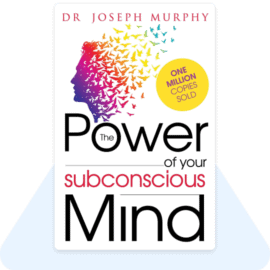
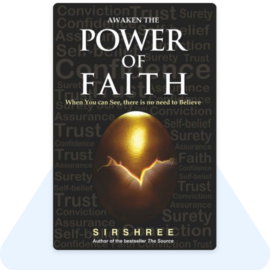
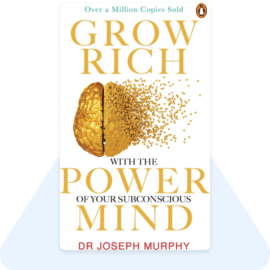
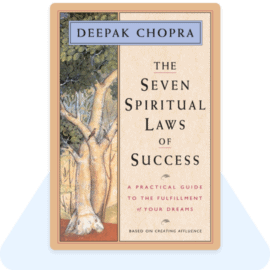
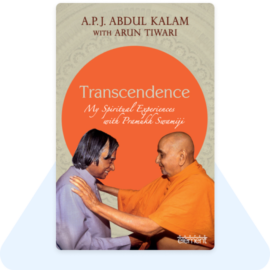


You should believe in yourself.
I love this book…i heard so much about this..you given me chance to read it…thankyou sir😊😇
Day-10–Autobiography of yogi is complete
Day 10. This book shares the teachings and experiences of Yogananda, a great spiritual master who dedicated his life to the pursuit of Realisation. We learn about the power of meditation, the nature of the soul, and the interconnectedness of all things.
Day 10 book autobiography of a yogi
Making other happy through the kindness of speech and sincerity of the right advice is a of true greatness.this is a amazing book summary.thankuu Amit sir.